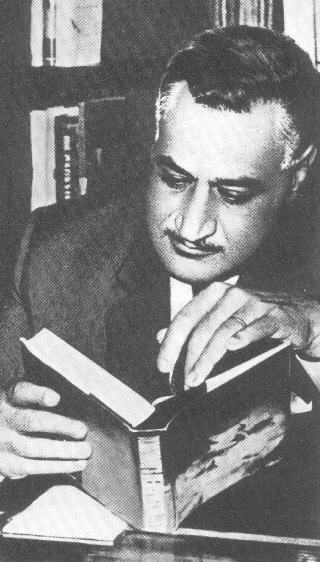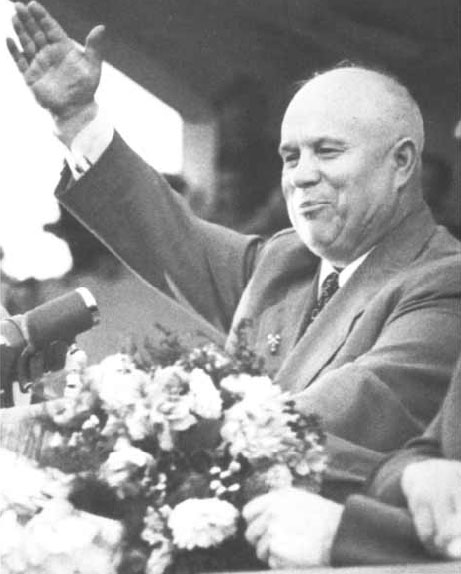THE SUEZ CRISIS
The Suez crisis of 1956 followed 10 years of growing unrest in the Middle East following a war which many Arabs had seen as essentially between European nations which had engulfed the region.
Britain was the major power in the area but its part in the formation of the new state of Israel and growing nationalism had seen a steady increase in anti-British feeling and protests as new political movements emerged – something noted with some concern by the Egyptian authorities.
In 1951 the corrupt regime of King Farouk tried to gain some popular support by ended the lease on the British base at Suez where we had 80,000 men. The die had been cast.
Britain refused to leave which sparked protests which soon became increasingly violent. The following year 41 Egyptians died when British troops tried to disarm a troublesome police depot, riots followed and amid growing civil unrest Farouk was deposed in a coup.
Britain reached an uneasy agreement with the new
republic but President Abdel Nasser's authority was fragile and an
assassination attempt in 1954 convinced him that both his own future and
that of his fledgling republic depended on making Egypt the leader of
the Arab world and challenging foreign, particularly British interests,
in the Middle East.
In the USA, where McCarthy's anti-communist un-American activities witch-hunt was only just drawing to a close, the red menace was a very real fear and they saw in Nasser (pictured left) a potential leader of an anti-communist Arab league. He was seen as an ally as the USA looked to build or, if needs be, buy influence in the oil rich Middle East.
But Nasser decided he could play the USA and USSR off against each other to the benefit of Egypt and when the US would not supply arms without conditions Nasser obtained them from the USSR – through Czechoslovakia and Bulgaria who were also selling to other Arab nations.
SOVIET INFLUENCE
The last thing the USA wanted was Soviet influence in the region and relations were strained even further when in May 1956 Egypt recognised the People's Republic of China. The US, who were supporting non-communist Taiwan, immediately withdrew its promised funding for the Aswam dam project.
Nasser's response was to nationalise the Suez Canal Company, which was run by the French with Britain the major shareholder, partly to pay for the dam. The British Government lawyers had already seen the possibility of nationalisation and their advice to the Conservative Government was that the move was legal as long as all shipping was allowed through and compensation was offered – something Nasser had claimed he would pay.
Under the Egyptian control the canal was operating normally and smoothly but Britain was determined not to lose face nor to lose power and influence in the region. It was also worried about losing free passage through the canal to reach the far flung outposts of Empire.
Many British politicians saw Nasser as another dictator in the mould of Mussolini and Eden told colleagues he would not allow Nasser to “have his thumb on our windpipe".
France, with extensive interests in North Africa and Lebanon wanted to show it had some authority in the region. They were unhappy that Egypt were supporting Algerian rebels against the French and, as a Frenchman had built the canal, felt a strong attachment to what was seen as their canal.
Israel meanwhile was a neighbour in dispute with Egypt which was blockading the Straits of Tiran, the access to Israel's only Indian Ocean Seaport of Eilat. Nasser was also supporting Palestinian attacks on the new state of Israel. TO THE Israelis Egypt was a threat. The stage was set.
HATCHED A PLOT
The French and British, wary of appearing the aggressors, hatched a plot with Israel. The Israelis would invade, Britain and France would issue an ultimatum then move in as “peacekeepers” demanding both sides withdrew 16 miles from the Canal. The Anglo-French forces would then take over running the canal claiming the instability meant that the passage was far too important to leave in the hands of the Egyptians.
Britain did not tell the Americans. The indications were that the US would oppose the plan but with growing Soviet influence they were convinced the US would back the invasion. They were wrong. The Americans were furious.
Israel, under Major General Moshe Dayan invaded Sinai and even had to slow down their advance to avoid winning before the Anglo-French interventionist forces could arrive.
The US warned Britain not to get involved. The Prime Minister, Anthony Eden, amid anti- war protests and marches in the streets of London, refused to listen and the following day Egypt was given the ultimatum to stop fighting or the Anglo-French force would intervene to “protect the canal.” A day later the bombing started.
Nasser retaliated by sinking all 40 ships then in the canal blocking it for months. On November 5 Anglo-French paratroops invaded, much to the embarrassment of the USA.
In Europe the Hungary uprising was in full swing with the USA condemning the brutal Soviet suppression while in the Middle East two of its allies were using vastly superior military force against Egypt.
The US was also worried about the potential for the invasion to escalate into another major war after the USSR and China had offered to come to the aid of Nasser and there were threats of missiles against London and Paris.
A more pressing reason through might have been the US Presidential election which was to be held on November 6. Dwight D Eisenhower was overwhelming favourite to win a second term against Democrat Adlai Stevenson but you cannot be too careful in elections.
America was seeing a period of growth and prosperity . . . . and peace. Ike had ended the Korean war, troops had returned home and the USA was emerging as the leader of the Free World. Being embroiled in yet another conflict in a far off land, acting as imperial bullies against a nation which was no threat to the USA and hardly able to defend itself was not seen as a sure fire vote winner on the eve of the election.
CLOSE TO DEFEAT
On November 6 with more troops and more attacks it was becoming obvious Egypt was close to defeat but so, in another battle, was Britain.
There had been a serious run on Sterling and the pound was facing devaluation. There was also the threat of an Arab oil embargo. The economy was taking a battering. The US indicated it would do nothing to help the pound until Britain and France withdrew.
By the end of the day Port Said had been taken and military commanders estimated full control of the canal would be established within 24 hours but it was not to be. Eden announced a ceasefire and at midnight on November 6 British forces were ordered to stop fighting. Britain had committed 45,000 troops to the Suez campaign and had suffered 16 deaths with 96 wounded.
Eden had bowed to US and economic pressure but
he had omitted to mention the ceasefire to either France or Israel,
infuriating both. The whole sorry episode ended on December 22 when the
Anglo-French forces withdrew under a UN brokered peace keeping
deal. It had been a fiasco. Anglo-US relations were at their lowest ebb,
relations with France were soured and the Soviets had crushed the
uprising in Hungary while much of the world was looking elsewhere.
keeping
deal. It had been a fiasco. Anglo-US relations were at their lowest ebb,
relations with France were soured and the Soviets had crushed the
uprising in Hungary while much of the world was looking elsewhere.
It was a godsend for Soviet leader Nikita Khrushchev (pictured right) who happily joined in the protests about Suez, defending the rights of smaller countries against major powers without a hint of irony.
BROKEN MAN
Eden, a broken man, resigned soon afterwards.
When he died in 1977 The Times said: “He
was the last prime minister to believe Britain was a great power and the
first to confront a crisis which proved she was not."
The fallout hit the Summer Olympics which opened in Melbourne on November 22. Egypt, Lebanon and Iraq refused to attend in protest at the invasion. The Netherlands, Spain and Switzerland were missing in protest at the crushing of the Hungarian uprising while The People's Republic of China stayed at home because the Republic of China, Taiwan, was allowed to compete as Formosa.
The long term effects were much deeper though. The US and USSR were confirmed as superpowers. France felt betrayed by Britain deserting them on the battlefield with a unilateral ceasefire. It no longer trusted its allies Britain and the USA and went its own way on defence and nuclear weapons.
Britain's influence in the world diminished even further hastening the end of Empire and colonial rule while Nasser's standing in the Arab world was never higher – and his dam was built with Russian help.
Roger Clarke
Home The
Play The Director
The Entertainer The
Producer The Cast